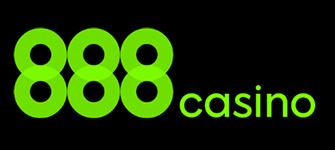Splitting Hands in Blackjack
If exercised properly, splitting can be one of the most lucrative moves for blackjack players against certain dealer upcards. This is like playing two separate hands at the same time within a single round against the same dealer upcard. If the dealer busts, then you win both hands. And vice versa, you lose both hands provided that the dealer outdraws you or gets a blackjack.
Players should treat the two hands individually and cover each one with separate but equal-in-size bets. The cards from one hand can never interfere with the cards from the other, and vice versa. This playing decision was interwoven into blackjack rules for the purpose of decreasing the casino’s edge.
Unfortunately, not all casual players know how to use it optimally to their advantage, in which case the move has the exact opposite of the originally intended effect. On the bright side, this is something one can easily fix. All one needs to do is understand why splitting pairs is so important and recognize the instances when this playing decision should be exercised.
- ✓ How to Split a Pair
- ✓ DAS, Resplitting and Hitting Split Aces
- ✓ Blackjack’s Golden Rule of Splitting
- ✓ Pairs You Should Never Split
- ✓ Other Pairs That Should Be Split
Here are the answers to some commonly asked questions regarding splitting pairs along with an overview of the optimal splitting moves when playing with basic strategy. But first, let’s have a glance at what splitting is and how it works.
When and How You Can Split a Pair in Blackjack
The primary purpose of splitting in blackjack is to help players win more when the dealer is in a weak spot. Certain pairs are also split in an attempt to boost one’s odds and potentially improve an otherwise bad starting hand. This playing decision is rather straightforward. It becomes available whenever both of the player’s cards are of equal value as is the case with A/A, 2/2, 8/8, and so on.
Remember that 10s, Jacks, Kings, and Queens all have a value of 10, meaning that you can also split pairs like J/K, Q/J, or 10/J. With that said, some landbased casinos and online blackjack variations impose restrictions on splitting, prohibiting players from using this move on pairs of unlike ten-value cards.
So here is how splitting works. Suppose a player gets dealt a pair of 3/3 for an overall total of 6 against a dealer showing a 6. They have invested $10 into this hand. This hypothetical player is familiar with basic strategy and knows fully well splitting is the optimal move against this dealer upcard.
When playing at a landbased casino, there are two ways to show the dealer one wants to split. In hand-held blackjack variations that use one or two decks, our hypothetical player will have to toss their starting two-card hand on the felt, with the cards facing up, in front of their betting box and post one more bet next to their initial wager.
This bet should match the original one in size. In shoe games that use four to eight decks, where the players’ cards are dealt exposed, our hypothetical player should first post the matching wager. The additional stack of chips is placed next to the initial bet, but never on top of it.
The player will then have a total of $20 in action during this round. They would indicate they want to split the 3/3 with a tap behind their cards, using their index and middle finger. The dealer would then separate the cards into two hands and hit each split so that the player ends up with two individual two-card totals. Each is played as usual in line with basic strategy.
Let’s assume the dealer flips over a ten next to their 6, draws again, and catches an 8 for a total of 24. This is a bust and our hypothetical player gets paid at even-money odds for both unbusted splits, collecting a total of $40 ($20 per hand). Of course, you click the Split button on UI in online blackjack rather than using hand gestures.
DAS, Resplitting and Hitting Split Aces
Following a split, blackjack players are sometimes dealt strong enough totals that justify pouring more money into the split hands. One of the ways to do this is with a double down. Similarly to splitting, doubling is intended to reduce the house edge and help patrons generate more money when the dealer is in poor shape with bad starting hands.
DAS
Unlike splitting which requires a matching wager, you can double down for less than your original bet. Doubling for less is, in general, not recommended because it takes away from the benefit of doubling, in the first place, and generates less money for the player when they are at a disadvantage.
The dealer would then deal no more than one card to the split hand the player has doubled on. This rule is known as Doubling after a Split, or DAS, and reduces the house advantage by 0.14%. The reduction is even greater if there are no restrictions on the totals one can double on. We regret to say this lucrative rule is unavailable in some landbased and online blackjack variations.
Resplitting
Resplitting pairs (RS) is another rule that favours the player, leading to a 0.10% drop in the casino’s edge. The higher the number of the allowed resplits, the better for blackjack players as this enables them to extract more value from favorable situations when the dealer is particularly weak.
Some casinos will forbid resplitting after the initial split has been made. However, many of the best blackjack variations you can find online will allow you to resplit up to three times to form a maximum of four hands. If resplitting is possible, one exception is made for pairs that consist of aces. Most mathematicians and gambling experts agree that splitting aces more than once will hurt the house edge and reduce it by 0.18%. This is the reason why resplitting this pair is generally prohibited.
Hitting Split Aces
When a player splits A/A, the dealer would draw no more than one card on each split. Hitting split aces (HSA) is also favorable to the player so it makes sense that variations where this move is possible are a true rarity at both online and landbased casinos.
There is one more oddity where splitting A/A is concerned. Assuming that one or two of the player’s split aces happens to catch a ten-value card, the hand is not treated as a blackjack even though it still consists of two cards that add up to 21. Rather, such hands are viewed as multi-card totals of 21 and pay even money instead of 3 to 2. Despite all these restrictions, it still pays to split aces, and shortly you will see why.
Always Split Pairs of Aces and 8s – Blackjack’s Golden Rule of Splitting
As previously mentioned, pair splitting aims at helping players win more profits against a weak dealer. This also increases their odds of improving bad starting hands that would otherwise lose more often than they would win. There are two prime examples for the two-fold purpose of splitting, the first one being a pair of 8/8.
Splitting 8/8
There is no need to be a mathematical genius to see the cards in this pair add up to hard 16, which easily wins the race for the worst total one can possibly get in this game. Hard 16 (like 8/9 or K/6) puts you at a great disadvantage, especially if the dealer has a strong card like a 10.
The odds here are severely tipped against you as the dealer will prevail over your 16 more than 76.5% of the time on average if you hit. The smartest thing to do in one such scenario is to surrender but then again, this is not always an option.
A pair of 8/8, however, is different because it gives you the chance to split your cards and start two individual hands with an 8. This is considerably better than starting a single hand with a total of hard 16.
Splitting 8/8 is far more optimal than surrendering, hitting, or standing, which is why casual basic strategy players should always split this pair, regardless of the dealer’s upcard. While this is still a negative-EV move, it ultimately helps you to lose less money than you would by choosing any of the other playing decisions.
An Exception to the Split 8/8 Rule
However, there are deviations in all rules and basic strategy is no exception. Optimal plays are influenced by a variety of factors such as deck number and the standing rules the house has set for the dealer.
In multiple-deck blackjack where the dealer hits rather than stands on soft 17, players are better off surrendering their 8/8 against the dealer’s ace. Surrendering under these playing conditions is more optimal than all other decisions, splitting included.
Splitting A/A
If you take a glance at a blackjack strategy card, you will quickly notice the second pair you should always split consists of A/A. This applies under all circumstances; the value of the dealer’s upcard is again irrelevant. But why is that?
Pairs of aces should be always split for a reason opposite to that for splitting 8/8. Aces are easily the most important cards in the whole game of blackjack. The player is better off starting two individual strong hands with aces (11) against any dealer upcard rather than holding onto a 12, albeit a soft one.
Just stop and think about this for a second. Should casinos prohibit players from resplitting aces if starting a hand with a total of 11 was disadvantageous? This is not a matter of opinion or empirical evidence, just simple mathematics. You stand a decent enough chance of catching K, J, Q, or a 10 on at least one of the splits since there are more cards of this denomination compared to all other card denominations.
The probabilities speak for themselves. Assume, for instance, you are the only person at the table and are playing a six-deck game, which makes for 312 cards in total. We shall not take burn cards or the dealer’s hidden card into account for the purpose of simplicity.
You are dealt a pair of A/A whereas the dealer pulls out a 3, just as an example. The shoe now contains 309 cards, 96 of which have a value of 10. It follows the probability of drawing a ten-value card to at least one of your aces is 96/309, or 0.310679. This is roughly 31.06%, which is not bad at all.
Of course, casinos have taken some precautions, prohibiting players from drawing more than one card next to each split ace. Even so, starting two hands with a total of 11 each is way much better than playing a soft 12.
An Exception to the Split A/A Rule
Similarly to pairs of 8/8, there is one exception to the “Always split A/A” rule, which again results from the differences in playing conditions across blackjack tables. So far, we have discussed exclusively the correct splitting decisions, applicable to blackjack games where hole cards are in play.
However, some tables (particularly those in the UK and Germany) use the European style of card dealing where the dealer receives only one exposed card at the start of the round. The second one is drawn only after players have finished with their hands.
Such games normally use multiple decks (often 6), restrict doubling to 9, 10, and 11, and support DAS but lack the dealer peek rule. It makes sense that the absence of the peek calls for some strategy modifications. The optimal basic strategy for splitting aces changes a wee bit. Rather than splitting when the dealer’s first card is an ace, players must hit their A/A and split against all other dealer cards.
Pairs You Should Never Split and Why
Under basic strategy, certain pairs of cards should never be split no matter what upcard the dealer holds. This applies to pairs that make for strong enough starting totals that are either left alone or require hitting, standing, or doubling rather than splitting.
One notorious example is a pair of ten-value cards like K/Q, J/K, J/Q, 10/Q, and so on. These hands should never be split (or hit for that matter). Yet, many casual players choose to split their tens when the dealer receives a bad upcard like a 5 or a 6, which significantly increases their chances of going over 21 (approximately 43% with a 5 and around 42% with a 6) and losing the round.
By splitting the tens, such players are trying to kill two birds with one stone, reasoning this aggressive approach would yield more profits over the long haul. Unfortunately, this play has the exact opposite effect in the long term – it yields more profits for the house rather than rewarding patrons.
After millions of simulated trials that stretch over several decades, blackjack experts have reached a unanimous decision that the optimal play for a pair of 10s is standing rather than splitting. It was mathematically established that standing on this pair will cause you to win roughly 84% of the time against the dealer’s 5 and 85% of the time against a 6.
By contrast, splitting the 10s underperforms, causing a drop in players’ win rate to 63% against a 5 and 64% against a 6. It is blatantly obvious which of the two decisions is the optimal one. No exceptions are made for a pair of 10s, regardless of how weak the dealer upcard is. The only thing you achieve by splitting is risking to ruin a perfectly good hand.
Another pair basic strategy players must refrain from splitting is 5/5. The trouble with blackjack players is they are granted freedom of choice, unlike the dealer, who has no say in how to play out their hands. Sadly, this freedom sometimes translates into casual players making the wrong choices as is the case with those who split 5/5 rather than hitting or doubling.
This hand is usually misplayed against weak dealer upcards like the 6. Nevertheless, simulations have once again proven that doubling on 5/5 against the 6 is the best course of action, followed by hitting where no additional wager is required. Do not split this pair against any dealer upcard. The lack of discipline will ultimately cost you over the long haul.
Other Pairs That Should Be Split and When
Remembering the above-listed rules about pairs of 10s, 5s, aces, and 8s is relatively easy due to the lack of incongruencies between the different variations. The correct moves for such pairs are largely uniform across all blackjack tables.
However, the same cannot be said about some of the other pairs where the correct playing decisions might vary depending on the set of rules. Below is a quick rundown of the recommended decisions for all the other pairs in shoe games:
- Pairs of 2/2 and 3/3 are split against dealer upcards 4, 5, 6, and 7. Splitting is also recommended against a dealer with a 2 or a 3 but only on condition you can double after a split.
- A pair of 4/4 calls for splitting against dealers holding a 5 or a 6 but only if DAS is possible. If not, you hit the pair against all upcards of the dealer.
- Paired 6/6 is split when the dealer shows upcards 3, 4, 5, or 6. You can also split against the deuce when DAS applies at the table.
- When holding 7/7, the player splits against dealer upcards 2 through 7 and hits against the rest.
- With 9/9, you split to two hands against all up cards of the dealer bar 7s, 10s, and aces.


 PlayOJO Casino
PlayOJO Casino 888casino
888casino All British Casino
All British Casino Casino Action
Casino Action UK Casino Club
UK Casino Club